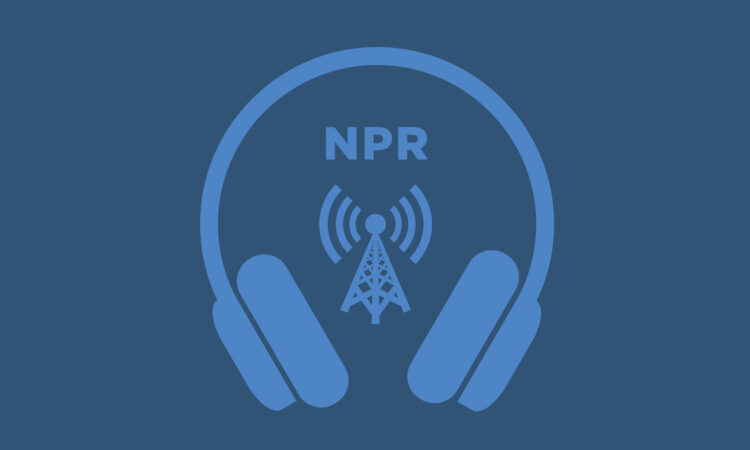
NPR’s Michel Martin talks to David Wessel, director of the Hutchins Center at the Brookings Institution, about how the U.S. economy performed this year — and what could be expected for 2024.
MICHEL MARTIN, HOST:
With the clock running down on 2023 we thought this would be a good time to take a look at how the U.S. economy did this year and what could lie ahead for 2024. For that, we turn, as we so often do, to David Wessel. He is director of the Hutchins Center at the Brookings Institution. Good morning, David.
DAVID WESSEL: Good morning, Michel.
MARTIN: So how did the U.S. economy turn out differently than you – and frankly, most economic forecasters – expected?
WESSEL: A lot of forecasters expected that we’d be in a recession by now or heading into one and I confess, I did, too. The thinking was that the fed would keep raising interest rates to bring down inflation until the economy cried uncle and unemployment rose sharply. In June 2022, former Treasury Secretary Larry Summers told us that the unemployment rate would have to rise above 5% to bring down inflation. In October 2022, Bloomberg said its own forecasting model put the odds of a 2023 recession at 100%, and in February 2023, the Congressional Budget Office predicted unemployment would be at 5.1% by now. Well, the fed raised interest rates a lot. The inflation rate came down, but the recession didn’t arrive, and the unemployment rate didn’t go up very much. At last report, unemployment was a historically low 3.7%. And over the first 11 months of 2023, the economy added 233,000 jobs a month, far more than most forecasters thought possible.
MARTIN: But how did so many forecasters get it so wrong?
WESSEL: Well, fed Chair Jay Powell was asked just that question earlier this month. And here’s what he said.
(SOUNDBITE OF ARCHIVED RECORDING)
JAY POWELL: We actually had a very strong year. And that was a combination of strong demand but also real gains on the supply side. So this was the year when labor force participation picked up, where immigration picked up, where the distortions to supply and demand from the pandemic, you know, the shortages and the bottlenecks really began to unwind. So we had…
WESSEL: In other words, the fed and a lot of other folks were surprised that the economy’s capacity to supply goods and services expanded so much even beyond resolving the COVID-related kinks in the supply chains.
MARTIN: So with that important caveat that a lot of forecasters got 2023 wrong in a way that we’re not sorry that they got wrong, I mean, the news is better than a lot of people thought, what’s the outlook for next year?
WESSEL: Today, the prospects for a soft landing where inflation comes down towards the fed’s 2% target without a recession are looking pretty good. But 2024 is likely to bring slower growth than this year and a small increase in the employment rate and probably a slowdown in consumer spending as the last of the money saved during the pandemic is spent. It won’t be good for everybody, of course, but the outlook is far better than many forecasters were predicting just a few months ago. In fact, nearly all the surprises in the economy have been good ones, and that could persist in 2024.
MARTIN: That would be very nice, but I have to ask, what could go wrong?
WESSEL: Well, there’s always a possibility of some geopolitical shock. Already we’re seeing the war in the Middle East disrupting shipping in the Red Sea. There could be an intensified trade war with China, political violence or terrorism in the U.S., but if you look at purely economic risks, unfortunately, there’s a long list of things that could go wrong. The fed could wait too long to cut interest rates and unintentionally cause a recession or it could be surprised and see that inflation is more virulent than expected and end up keeping rates higher for longer. Congress could trigger unwelcome spending cuts if it can’t agree soon on a budget. Markets have been ebullient lately but they’re fickle, and that could change. And banks have been getting pickier about to whom they lend, and that could starve the economy for credit. And finally, there’s the hard to predict matter of consumer and business sentiment. So far, consumers have been spending readily, even as they tell pollsters they’re worried about the economy. But if lots of consumers get nervous at once, that can slow an already slowing economy.
MARTIN: That’s David Wessel, he’s director of the Hutchins Center at the Brookings Institution and a familiar voice on MORNING EDITION. Thanks, David, and Happy New Year.
WESSEL: Happy New Year to you, Michel.
(SOUNDBITE OF EMILIE LEVIENAISE-FARROUCH’S “SCALE OF VOLATILITY”)
Copyright © 2023 NPR. All rights reserved. Visit our website terms of use and permissions pages at www.npr.org for further information.
NPR transcripts are created on a rush deadline by an NPR contractor. This text may not be in its final form and may be updated or revised in the future. Accuracy and availability may vary. The authoritative record of NPR’s programming is the audio record.






